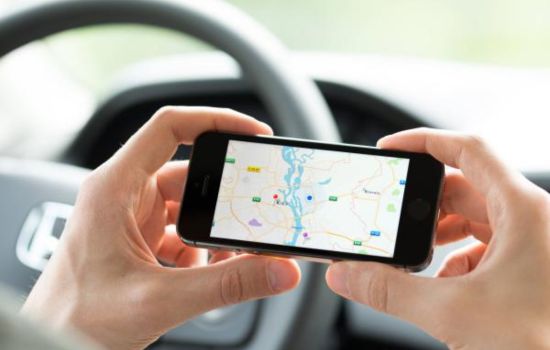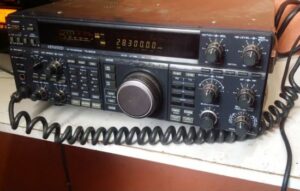3:47 AM. Torrential rain. Unfamiliar road in the middle of nowhere.
Your GPS just displayed the most terrifying message in the modern world: "No internet connection".
The silence that follows is deafening. Your heart races. Your palms sweat. Suddenly, you realize an uncomfortable truth: you have no idea where you are.
Welcome to the dark side of the digital age.
See also
- Ovulation Calendar on Your Mobile
- Tube, Pluto TV and More Alternatives
- Regression to other eras
- Recognize any plant instantly
- Instant communication with your phone
The Great Scam of Modern Shipping
They Sold Us a Beautiful Lie
They told you that with a smartphone you'd be invincible. That you'd have the world's knowledge in your pocket. That you'd never get lost again.
But no one mentioned the fine print.
Modern navigation operates on a fragile premise: that you'll always have perfect reception, that towers will never fail, that your battery will last forever.
It's like building a castle on sand and pretending it's rock solid.
The Industry That Prefers to Keep You Dependent
Why do you think big tech companies don't aggressively promote offline browsing?
Simple: dependency is more profitable than freedom.
Every search on Google Maps generates valuable data. Every route calculated is information they can monetize. Your constant location is pure gold for advertisers.
Google Maps: The Benevolent Master with Invisible Chains
Let's be brutally honest about Google Maps.
But it is also the most addictive digital drug ever created.
The Problem with Connected Perfection
Google Maps gives you everything when you have internet access. Nearby restaurants, real-time reviews, optimized routes. It's like having an omniscient personal assistant.
But that perfection comes at a price: total dependence.
The Hidden Limitations of Offline Mode
- Maps that are automatically deleted every 30 days
- Unable to download entire countries
- No voice navigation in many languages
- Basic functions disabled offline
Google gives you enough offline functionality to avoid switching apps, but not enough to make you truly independent.
It's brilliant corporate strategy. And subtle manipulation.
Maps.me: The Rebel Who Challenged the System
In 2011, when everyone was running to the cloud, Maps.me made a revolutionary decision: to build maps that lived on your device, not on remote servers.
They were called crazy. Retrograde. Old-fashioned.
History has shown that they were visionaries.
Why Maps.me Is Still Relevant
Maps.me understands a fundamental truth: The best connectivity is not needing connectivity.
His philosophy is simple but powerful:
- Download once, use forever
- Ultra-efficient vector maps
- It works anywhere on the planet
- Your privacy stays with you
The Secret of Their Survival
While other apps chase fancy features, Maps.me has perfected one thing: be absolutely reliable when all else fails.
It's the digital equivalent of a Swiss Army knife: not glamorous, but it always works.
Organic Maps: The Silent Revolution
You know Organic MapsIf your answer is no, you're not alone. This app represents everything that could be good about the digital world, but it remains in the shadows.
The Anti-App That Changed the Rules
Organic Maps is the opposite of everything you'd expect from a modern app:
- No intrusive ads
- No collection of personal data
- No hidden subscriptions
- No psychological tricks to keep you hooked
And that is precisely why it is extraordinary.
The Power of the Global Community
Organic Maps is powered by OpenStreetMap, humanity's most ambitious collaborative mapping project. Millions of volunteers around the world contribute data, correct errors, and add details.
It's like Wikipedia, but for maps. And it works completely offline.
The Perverse Psychology of Digital Dependence
How We Lost the Art of Finding Our Ways
Before GPS, humans navigated using:
- Position of the sun and stars
- Terrain characteristics
- Wind patterns
- Developed spatial intuition
Now we blindly follow a robotic voice without questioning whether the direction makes sense.
The Disturbing Thought Experiment
Imagine for a moment if all the GPS systems in the world stopped working simultaneously.
How many people could get home using only their knowledge of their surroundings?
How many would even know which way is north?
The answer is terrifying.
Extreme Cases: When Technology Kills
Tragedy in Death Valley – 2020
A couple of tourists blindly followed Google Maps directions in California. The app directed them on a "shorter" route that turned out to be an abandoned desert road. They were found dehydrated three days later.
Your mistake: blind trust in technology.
The Pilot Who Flew to Nowhere – 2019
An experienced pilot followed his GPS to what he thought was the correct airport. The GPS had outdated data. He landed on an abandoned airstrip in the middle of the Amazon rainforest.
It took them six days to find him.
The Avalanche of Confidence – 2018
A group of skiers followed a "safe" route according to their navigation app. The app didn't take into account current weather conditions or avalanche risk. Two people died.
Common pattern: total dependence without critical thinking.
The Philosophy of Hybrid Navigation
The Art of Combining Worlds
True wisdom is not in rejecting technology or blindly depending on it. It is in creating intelligent redundant systems.
The Smart Navigator Strategy
Human Intelligence:
- Study routes before leaving
- Identify important landmarks
- Develop basic directional intuition
Offline Technology:
- Maps.me for robust navigation
- Organic Maps as ethical backup
- Physical maps for extreme emergencies
Smart Connectivity:
- Google Maps for real-time optimization
- Specialized apps according to activity
- Emergency communication
Redundancy is not paranoia, it's intelligence
Airplane pilots don't have just one navigation system. They have six.
Sailors don't rely solely on GPS. They carry compasses, sextants, and nautical charts.
Why should civilians be any different?
The Real Cost of Digital Ignorance
It's Not Just Inconvenient, It's Dangerous
Every year, rescue services report alarming increases in rescues related to failed navigation.
The U.S. Coast Guard reports that 60% of marine rescues involve malfunctioning or misinterpreted GPS.
European mountain rescue services report similar numbers.
The Invisible Economic Factor
- Rescue costs: up to $50,000 per operation
- Time lost due to disorientation: millions of hours annually
- Opportunities lost due to fear of exploration: incalculable
- Degradation of natural abilities: irreversible
Emerging Technology: The Post-Connectivity Future
Mesh Networks: Internet Without Internet
Imagine a network where each smartphone acts as a repeater. Where maps are distributed from device to device without the need for central towers.
This technology already exists and is evolving rapidly.
Local AI: Intelligence Without the Cloud
Modern chips can run artificial intelligence locally. Navigation that learns from your patterns, anticipates your needs, and works completely offline.
It's not science fiction. It's the immediate present.
Offline Augmented Reality
Maps overlaid on reality using only your phone's camera. No internet connection required, no dependence on remote servers.
The Moment of Decision
Will You Remain a Victim or Take Control?
Every day you spend unprepared for independent navigation is one day closer to finding yourself completely lost when technology fails.
And it's not a question of whether it will fail. It's a matter of when.
The Three Steps to Digital Freedom
- Accept reality: Perfect connectivity is an illusion
- Diversify your arsenalMultiple apps, multiple strategies
- Practice regularly: Use offline mode intentionally

Conclusion
We live in an extraordinary time where the cartographic knowledge of all humanity fits in our pockets. But we've traded wisdom for convenience, autonomy for dependence.
Maps.me offers you the reliability of a seasoned veteran. Organic Maps gives you the purity of browsing without a corporate agenda. Google Maps gives you the power of connectivity when available.
But the most important tool isn't in any app. It's in your mind.
The ability to think critically about routes. To question directions that don't make sense. To maintain situational awareness even when following automated directions.
The real revolution isn't technological. It's personal.
It's about regaining control over your ability to move around the world without relying on giant corporations that can cut off your service at any time.
Don't wait until you're lost to appreciate the importance of finding your way.
Freedom of navigation begins now. With your next offline map download.
Are you ready to be truly free to move around the world?









